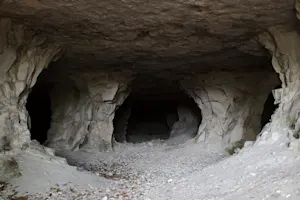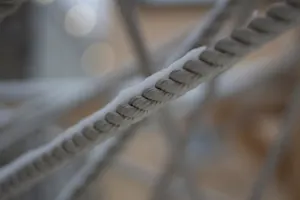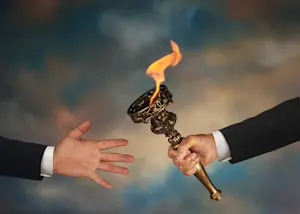What Makes This Word Tick
"Treacherous" is one of those words that instantly conjures images of untrustworthy terrain or sly individuals. It's perfect for anything marked by hidden dangers or deceit. Think of a slippery icy road or a friend who promises one thing but delivers another. Both fit snugly under this word's rather sinister umbrella.
If Treacherous Were a Person…
Picture a slick character from a classic noir film, always lurking in the shadows, ready to betray with a charming smile. They'd be the type who sings like a canary at the first sign of trouble. An unpredictable mix of charisma and cunning, they'd always keep you guessing.
How This Word Has Changed Over Time
Originally, "treacherous" was closely linked to betrayal, especially the kind that involved breaking trust. Over time, while it still holds that meaning, it's broadened to describe dangerous conditions, reminding us that treachery isn't exclusive to human behavior.
Old Sayings and Proverbs That Use Treacherous
While specific old sayings might not directly name "treacherous," many echo its sentiment: "False friends are worse than open enemies" is one such nugget. The notion that the most perilous threats aren’t always the most obvious is a theme that runs deep through the annals of proverbs.
Surprising Facts About Treacherous
It may surprise you that, despite its serious connotations, "treacherous" can be paired with weather in forecasts. Meteorologists might describe icy roads or high seas as treacherous, blending this high-drama word with everyday situations.
Out and About With This Word
You can almost feel the tension in the air when someone whispers that a path is treacherous. Whether it’s a nerve-wracking hiking trail or an unpredictable business negotiation, "treacherous" adds a certain cinematic flair—making you expect the unexpected.
Pop Culture Moments Where Treacherous Was Used
Taylor Swift brought a bit of a romantic twist to the word with her song "Treacherous," painting a picture of a dangerously alluring love. It fits the bill of a pop culture moment where the word adds layers to the intrigue and unpredictability of relationships.
The Word in Literature
In literature, "treacherous" often finds its home in the pages of mystery novels or epic sagas. It’s the perfect descriptor for plotting villains or precarious journeys, lending an aura of suspense and urgency to any storyline.
Moments in History with Treacherous
The infamous tale of Julius Caesar's betrayal—“Et tu, Brute?”—can be described with a word like "treacherous." The assassination in the Roman Senate remains one of history's most infamous acts of treachery, forever highlighting the dangers of misplaced trust.
This Word Around the World
Across languages, the concept of treachery resonates similarly. In Spanish, "traicionero" captures this spirit, while in French, "traître" speaks to the idea of treachery with a whisper of danger. No matter the language, betrayal is a universal sentiment.
Where Does It Come From?
"Treacherous" comes from Middle English, born out of the Anglo-Norman term "trecherous," and ultimately traces back to Latin roots with "traditor," meaning "betrayer." Its journey through these languages reflects its enduring meaning across time.
How People Misuse This Word
Sometimes, "treacherous" gets slapped onto mildly inconvenient things, like a slightly wet sidewalk—not quite the hidden danger it implies. It's best saved for situations truly sneaky or perilous.
Words It’s Often Confused With
Perilous: Often relates to danger, but without the implication of deceit or betrayal.
Deceitful: Focuses more on the act of lying, without necessarily implying danger.
Dangerous: A broader term, not necessarily hiding its threat like "treacherous."
Additional Synonyms and Antonyms
For synonyms, think "duplicitous" and "untrustworthy." Antonyms could be "reliable" or "faithful," embodying the opposite of betrayal or hidden danger.
Want to Try It Out in a Sentence?
Picture this: "The mountain path was treacherous, each step potentially concealing an unseen peril just waiting to unravel." Adds a bit of a chill, doesn't it?
















